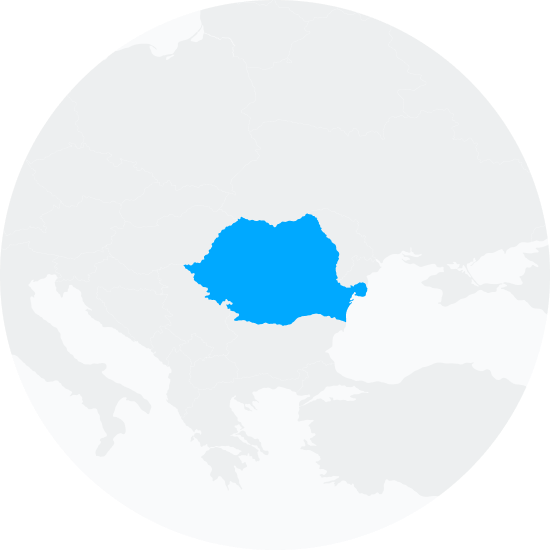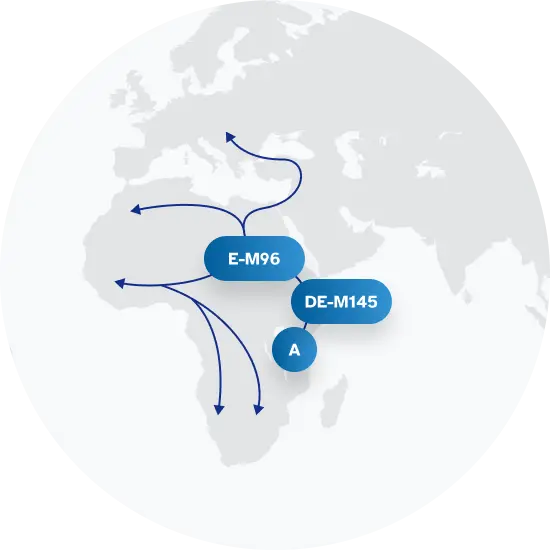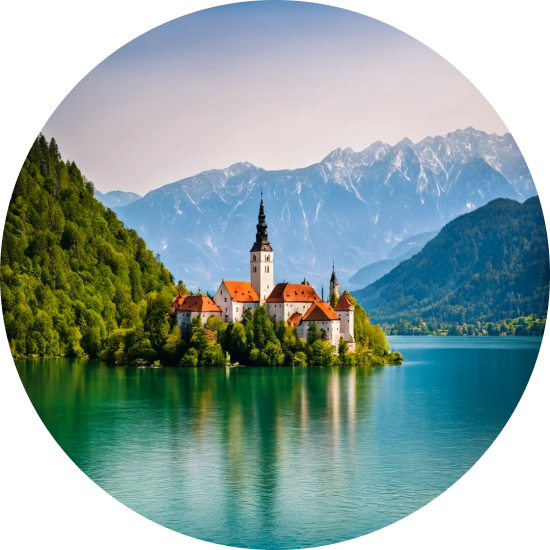Explore the Family Name Popa
How common is the last name Popa in the United States?
Based on data from the Decennial U.S. Census, the surname Popa has seen a notable increase in popularity over the first decade of the 21st century. In 2000, it ranked 13,048th in terms of commonality, but by 2010 it had risen to 11,428th – a growth of 12.42%. This uptick is reflected in the raw count as well: there were 2,153 individuals with this surname in 2000, and by 2010 that number had grown to 2,757, marking a 28.05% increase. Accordingly, the proportion of people named Popa per 100,000 increased from 0.8 to 0.93 during this period, an upsurge of 16.25%.
| 2000 | 2010 | Change | |
|---|---|---|---|
| Rank | #13,048 | #11,428 | 12.42% |
| Count | 2,153 | 2,757 | 28.05% |
| Proportion per 100k | 0.8 | 0.93 | 16.25% |
Race and Ethnicity of people with the last name Popa
Moving onto the topic of ethnicity, also based on the Decennial U.S. Census, most individuals with the surname Popa identified as White in both 2000 and 2010. The percentage of Popa individuals identifying as White grew slightly from 85.04% to 87.27% during this time. Interestingly, there was a small increase in those identifying as Hispanic, rising from 7.06% to 7.44%. However, the proportions of those identifying as Asian/Pacific Islander or belonging to two or more races saw decreases, falling from 3.39% to 2.50% and 3.62% to 1.99% respectively. There were no individuals identifying as Black or American Indian and Alaskan Native in 2000, however, by 2010, 0.80% identified as Black.
| 2000 | 2010 | Change | |
|---|---|---|---|
| White | 85.04% | 87.27% | 2.62% |
| Hispanic | 7.06% | 7.44% | 5.38% |
| Asian/Pacific Islander | 3.39% | 2.5% | -26.25% |
| Two or More Races | 3.62% | 1.99% | -45.03% |
| Black | 0% | 0.8% | 0% |
| American Indian and Alaskan Native | 0% | 0% | 0% |
Popa ancestry composition
23andMe computes an ancestry breakdown for each customer. People may have ancestry from just one population or they may have ancestry from several populations. The most commonly-observed ancestry found in people with the surname Popa is Greek & Balkan, which comprises 64.8% of all ancestry found in people with the surname. The next two most common ancestries are Eastern European (15.9%) and French & German (7.4%). Additional ancestries include British & Irish, Ashkenazi Jewish, Iranian, Caucasian & Mesopotamian, Italian, and Spanish & Portuguese.
Ready to learn more about your ancestry? Get the most comprehensive ancestry breakdown on the market by taking our DNA test. Shop 23andMe
| ANCESTRY BREAKDOWN | COMPOSITION |
|---|---|
| Greek & Balkan | 64.8% |
| Eastern European | 15.9% |
| French & German | 7.4% |
| Other | 12.0% |

Possible origins of the surname Popa
Your DNA provides clues about where your recent ancestors may have lived. Having many distant relatives in the same location suggests that you may all share common ancestry there. Locations with many distant relatives can also be places where people have migrated recently, such as large cities. If a large number of individuals who share your surname have distant relatives in a specific area, it could indicate a connection between your surname and that location, stemming from either recent ancestral ties or migration.
Based on 23andMe data, people with last name Popa have recent ancestry locations all within Romania.
| RECENT ANCESTRY Location | Percentage |
|---|---|
| Cluj County, Romania | 79.00% |
| Prahova, Romania | 77.40% |
| Bucharest, Romania | 77.40% |
| Suceava County, Romania | 77.40% |
| Mures County, Romania | 76.60% |
What Popa haplogroups can tell you
Haplogroups are genetic population groups that share a common ancestor on either your paternal or maternal line. These paternal and maternal haplogroups shed light on your genetic ancestry and help tell the story of your family.
The top paternal haplogroup of people with the surname Popa is E-V13, which is predominantly found among people with European ancestry. Haplogroup E-V13 is descended from haplogroup E-M96. Other common haplogroups include R-P312 and I-S17250, which are predominantly found among people with European and European ancestry. Other surnames with similar common haplogroups are: Bock, Pappas, Kiss, Popov, Bartz, Lazar, Wolfe, Ivanov, Wolf, Jablonski.
The most common maternal haplogroups of people with Popa surname are: H1, J1c, H. These most commonly trace back to individuals of European ancestry.
 Paternal Haplogroup Origins E-M96
Paternal Haplogroup Origins E-M96
Your paternal lineage may be linked to early Balkan migrants
Haplogroup E1b1b1a1b1a migrated in large numbers from the Balkans into Europe about 4,500 years ago, triggered by the beginning of the Balkan Bronze Age. During this migration, members of haplogroup E1b1b1a1b1a mainly followed rivers connecting the southern Balkans to northern-central Europe. Technological leaps often cause lineages to grow dramatically in numbers and in geographic range. The development of Bronze technology may have given men in haplogroup E1b1b1a1b1a a competitive advantage over other men, causing haplogroup E1b1b1a1b1a to proliferate and become widespread.
Your maternal lineage may be linked to Marie Antoinette
Because it is so dominant in the general European population, haplogroup H also appears quite frequently in the continent's royal houses. Marie Antoinette, an Austrian Hapsburg who married into the French royal family, inherited the haplogroup from her maternal ancestors. So did Prince Philip, Duke of Edinburgh, whose recorded genealogy traces his female line to Bavaria. Scientists also discovered that famed 16th century astronomer Nicolaus Copernicus traced his maternal lineages to haplogroup H.

What do people with the surname Popa have in common?
Spoiler alert: it's complicated. People with the same last name are usually no more genetically similar than a randomly sampled group of people from the same population. That said, people with the same surname are more likely to have similar ancestries than randomly sampled individuals. The reason is the tendency of people with similar cultural or geographical backgrounds to preferentially mate with one another. That's why people who share a surname may be more likely to share traits and tendencies in common than people within the general population. Check out the percentages below to see the prevalences of tastes, habits, and traits of people with your surname compared with prevalences among 23andMe users.
Preferences
Traits
Habits
Wellness

Migraine
A severe headache characterized by intense pain, sensitivity to light and sound, and often accompanied by nausea and vomiting.
"Popa" Surname 10.4%
23andMe Users 16.4%
Are health conditions linked to the last name Popa?
The short answer is that, if there is an association between surname and health, it's usually more about your ancestry than your name. Individuals with a given surname are no more genetically similar than the general population but often have similar ancestries. The populations of people associated with those shared ancestries often have sets of genetic variations, also known as alleles, in common. Some of those alleles are associated with a greater likelihood of developing certain diseases.
Disease variant frequency by ancestry
Disease allele frequencies in populations associated with the surname Popa are shown below. Important Note: not everyone with a disease allele will develop these health condition










